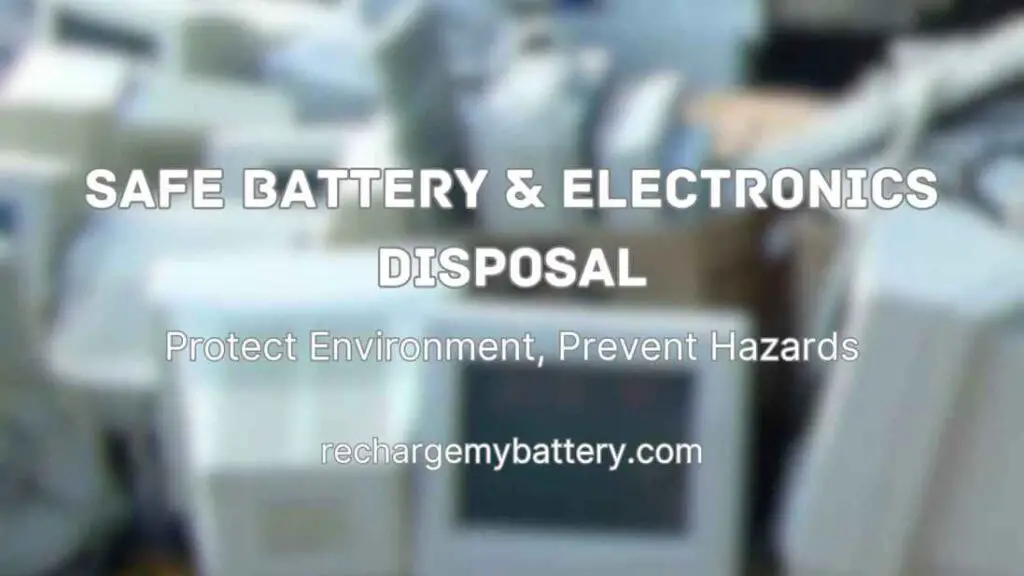Proper disposal of batteries and electronic devices is crucial to ensure the safety of individuals, prevent fires, and protect the environment. The Wisconsin Department of Natural Resources (DNR) has issued a warning regarding the potential fire dangers associated with the incorrect disposal of lithium-ion batteries, commonly found in various electronics.
In recent incidents at recycling and waste facilities, batteries were identified as the primary cause of significant fires. Therefore, it is essential to understand the proper methods for disposing of these batteries and electronics to avoid potential risks and hazards.
1. Recognizing the Risks of Improper Disposal
- Understanding the fire hazards associated with lithium-ion batteries
- Retained charges and their potential to spark or heat up when damaged
- The increased risk to workers and fire crews
2. Importance of Responsible Disposal
- Limitations of recycling facilities in handling batteries and electronics
- Fire risks posed to paper, cardboard, and other materials at recycling facilities
- The significance of taking batteries and electronics to designated drop-off sites
3. Battery Disposal Guidelines
- Educating oneself about different battery types and proper management
- Utilizing the DNR’s household battery recycling guide
- Taking used, rechargeable batteries to local collection sites
- Exploring battery recycling programs offered by retailers or Call2Recycle
4. Electronics Disposal Recommendations
- Participating in E-Cycle Wisconsin for safe and convenient electronic recycling
- Identifying collection sites and free mail-back programs through the DNR’s online list
- Highlighting the ban on landfill and incinerator disposal of electronics
- Emphasizing the distinction between electronics and other recyclable materials
5. Storing Batteries for Recycling
- Ensuring safe storage by taping battery terminals or using individual plastic bags
- Preventing accidental sparks caused by terminal contact
- Proper procedures for damaged batteries or devices
- Sand or kitty litter as a storage medium and contacting the manufacturer or Call2Recycle for instructions
Conclusion
By disposing of batteries and electronics responsibly, we can mitigate the risks associated with fires, protect the environment, and ensure the safety of individuals and workers.
Adhering to the guidelines provided by the Wisconsin Department of Natural Resources is crucial for managing different types of batteries and electronics correctly. Let’s collectively contribute to a safer and cleaner environment by following these essential practices. Thank you for reading.



